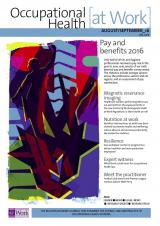August/September 2016 (vol. 13/2)
ContentsFeaturesNewsLegal
NewsResearch DigestResearch PlusCPD
Research Plus
PTSD risk for terror attack rescue workers
Professional rescue workers experienced lower rates of post-traumatic stress symptoms (PTSS) and posttraumatic stress disorder (PTSD) than unaffiliated volunteers dealing with the aftermath of the 2011 terror attacks in Norway, when 77 people died following a car bomb and subsequent mass shooting at a youth camp. The study involved 1,790 people, including healthcare workers, police, fire-fighters, volunteers from voluntary rescue organisations and unaffiliated volunteers. Questionnaires were completed 10 months after the attacks. Prevalence of sub-threshold PTSD ranged from 1%–3% for the various professional and affiliated rescue personnel groups, but was 24% for unaffiliated volunteers; prevalence of possible PTSD was 0.2%–2% for professionals/affiliates and 15% for unaffiliated volunteers. Female gender, witnessing injured/ dead victims, perceived threat, perceived obstruction in rescue work, lower level of previous training and being an unaffiliated volunteer were associated with higher PTSS risk (p <0.001 for all comparisons). Previous work experience of similar tasks, training in similar tasks, sense of achievement and role clarity were associated with lower PTSS risk.
Occupational Health at Work August/September 2016 (vol. 13/2) pp41



